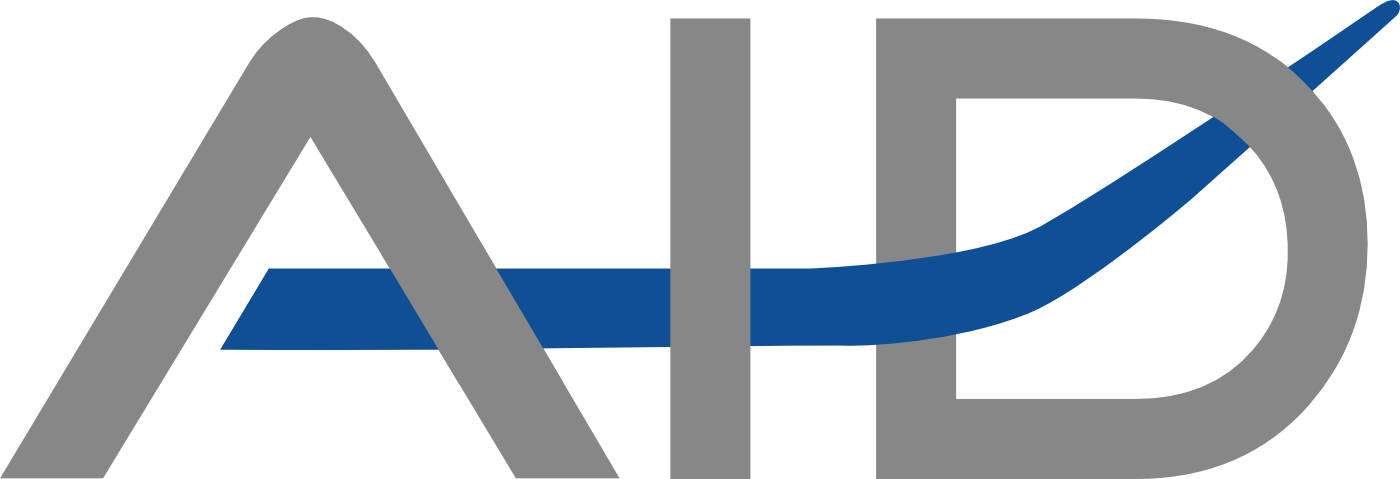Ob Ihre Mitarbeiter einen Einblick in die Grundlagen der Luft- und Raumfahrtindustrie benötigen, ihre bereits vorhandenen Kenntnisse auffrischen oder ein spezielles Thema vertiefen wollen – unsere Schulungen werden Ihren Bedürfnissen angepasst. Die Schulungen werden von Experten aus der Branche durchgeführt und sind praxisnah konzipiert, um ihren Mitarbeitern einen maximalen Mehrwert zu bieten.
Was uns von der Konkurrenz unterscheidet:
Maximaler Praxisbezug
Unsere Trainer sind Ingenieure und Fachleute, deren Tagesgeschäft vornehmlich aus Projektarbeit in der Industrie besteht und die für ihre Neigung zur Weitergabe von Wissen ausgewählt wurden. So stellen wir sicher, dass die vermittelten Inhalte immer auf dem neuesten Stand der Technik beruhen.
Nachhaltige Wissenssicherung
Das Konzept unserer Schulungen basiert auf der Interaktion zwischen dem Trainer und den Teilnehmern. Aus diesem Grund teilen unsere Trainer ihre persönliche Erfahrungen und diskutieren die spezifischen Probleme der Teilnehmer. Das erworbene Wissen wird durch Gruppenarbeiten verstärkt, indem die Teilnehmer typische Aufgabenstellungen bearbeiten.
Maßgeschneiderte Schulungen
Wir erstellen für Sie ein Angebot, das auf die Bedürfnisse ihres Unternehmens ausgerichtet ist und richten unsere Inhalte und Konzepte darauf aus. So ist sichergestellt, dass Ihre Mitarbeiter genau die Informationen erhalten, die sie für ihre tägliche Arbeit benötigen.
Flexible Gestaltung
Ort, Dauer, Termin & Umfang der Weiterbildung wählen Sie ganz nach Ihren Wünschen und Bedürfnissen. Wir unterstützen Sie bei der Planung ihrer Schulungen und unterstützen Sie auf Wunsch auch beim Teilnehmermanagement und der Schulungsevaluation.
Maximaler Praxisbezug
Unsere Trainer sind Ingenieure und Fachleute, deren Tagesgeschäft vornehmlich aus Projektarbeit in der Industrie besteht und die für ihre Neigung zur Weitergabe von Wissen ausgewählt wurden. So stellen wir sicher, dass die vermittelten Inhalte immer auf dem neuesten Stand der Technik beruhen.
Nachhaltige Wissenssicherung
Das Konzept unserer Schulungen basiert auf der Interaktion zwischen dem Trainer und den Teilnehmern. Aus diesem Grund teilen unsere Trainer ihre persönliche Erfahrungen und diskutieren die spezifischen Probleme der Teilnehmer. Das erworbene Wissen wird durch Gruppenarbeiten verstärkt, indem die Teilnehmer typische Aufgabenstellungen bearbeiten.
Maßgeschneiderte Schulungen
Wir erstellen für Sie ein Angebot, das auf die Bedürfnisse ihres Unternehmens ausgerichtet ist und richten unsere Inhalte und Konzepte darauf aus. So ist sichergestellt, dass Ihre Mitarbeiter genau die Informationen erhalten, die sie für ihre tägliche Arbeit benötigen.
Flexible Gestaltung
Ort, Dauer, Termin & Umfang der Weiterbildung wählen Sie ganz nach Ihren Wünschen und Bedürfnissen. Wir unterstützen Sie bei der Planung ihrer Schulungen und unterstützen Sie auf Wunsch auch beim Teilnehmermanagement und der Schulungsevaluation.
Schulungen zur Luftfahrtgesetzgebung
Die Entwicklung, Produktion und Instandhaltung von zivilen Luft- und Raumfahrtprodukten wird durch internationale Behörden wie der FAA (Federal Aviation Administration) oder der EASA (European Union Aviation Safety Agency) strengstens überwacht. Zivile Luftfahrtunternehmen müssen von der EASA definierte Standards einhalten, um auf dem europäischen Markt tätig sein zu können. Unsere Schulungen vermitteln den Teilnehmern ein Verständnis für den rechtlichen Rahmen und ermöglichen ihnen die Orientierung innerhalb der gesetzlichen Rahmenbedingungen.
Grundlagen Luftrecht - Aviation Legislation
Aviation Legislation
Dauer: 2 Tage
Schulungsdurchführung: DE/EN
Schulungsunterlagen: EN
Within two days, you will receive all the necessary basics of aviation legislation. You will get to know the international, European and national authorities including their responsibilities and tasks. You will also get an insight into the various aviation organisations in the industry, such as design organisations, production organisations or maintenance organisations.
Inhalt:
- Basics of aviation legislation
- Basic regulatory framework
-
- Organisations und responsibilities of ICAO, EASA, National Aviation Authorities
- Publishing and applicability
-
- Hard law, soft law
- AMC
- Definitions
-
- Aviation Organisations
-
- Design Organisation - DO
- Production Organisation - PO
- Continuing Airworthiness Management Organisation - CAMO
- Maintenance Organisation - MO
- Maintenance Training Organisation – MTO
-
- Access to aviation legislation
- Business implementation
-
Download Course Information as PDF file: AID - Aviation Legislation
Part 21J – Luftfahrttechnische Entwicklungsbetriebe
Part 21J - Design Organisation
Dauer: 2 Tage
Schulungsdurchführung: DE/EN
Schulungsunterlagen: EN
The development of aeronautical products is the responsibility of design organisations that have been approved by the EASA. The requirements for these approved design organisations are specified in EU Regulation No. 748/2012 and its amendments. Within two days, you will receive an introduction to the processes, organisational requirements and their commercial implementation required for a design organisation in accordance with EASA Part 21J.
Inhalt:
- Basic Regulatory Framework (ICAO, EASA, LBA, Hard Law, Soft Law, AMC, Definitions…)
- Aviation Organisations (DO, PO, CAMO, MO, MTO)
- Part 21J – Design Organisation
-
- Organisation (Roles and Responsibilities, Management Staff)
- Independent System Monitoring (Audit, Compliance Monitoring)
- Type Certification (Certification Basis, Compliance Declaration)
- Changes to Type Design (Classification, Approval of Change)
- Repairs
- Design Process
- Compliance Demonstration
- Permit to Fly
- Coordination between DO/PO/MO
- Document Control
- Continued Airworthiness
- Suppliers
-
Download Course Information as PDF file: AID - Part21J Design Organisation
Part 21G - Luftfahrttechnische Herstellungsbetriebe
Part 21G - Production Organisation
Dauer: 2 Tage
Schulungsdurchführung: DE/EN
Schulungsunterlagen: EN
To build and certify aircraft parts manufacturing companies need to hold a Production Organisation Approval. The EASA Part 21 Subpart G of Regulation (EC) No 748/2012 provides the regulatory framework for the approval of Production Organisations. This two-day course provides an introduction to European Aviation laws, as well as an understanding of the regulatory tasks and responsibilities of a Production Organisation.
Inhalt:
- Basic Regulatory Framework (ICAO, EASA, LBA, Hard Law, Soft Law, AMC, Definitions…)
- Aviation Organisations (DO, PO, CAMO, MO, MTO)
- Introduction to EASA Part 21 Regulatory Environment
- Airworthiness Principles
- DO-PO Arrangement
- PO-PO Arrangement
- Part 21G Production Organisation
-
- Internal Audits
- Personnel qualification
- Control of Documents
- Calibration tool, test equipment
- Configuration Management
- Supplier Management
- Handling, storage, packing
- Production, inspection, testing
- Production of prototypes
- Occurrence reporting
- Authorised Release Certificate EASA Form 1
- Aircraft Statement of Conformity EASA Form 52
- Certificate of Release to Service EASA Form 53
-
Download this Course Information as PDF file: AID - Part21G Production Organisation
Jetzt unverbindlich Termine anfragen
Jetzt anrufen +49 8856 903 45 30
Qualitätsmanagement Schulungen
Branchenübergreifend entwerfen und implementieren Unternehmen Qualitätsmanagementsysteme, um ihre internen Abläufe zu verbessern, ihre Effizienz zu steigern und ihre Kundenzufriedenheit zu erhöhen. Unsere Qualitätsmanagement-Schulungen helfen unseren Kunden, die Prozesse zu etablieren, die sie benötigen, um ein funktionierendes Qualitätsmanagementsystem aufzubauen. Die Kurse sind für Mitarbeiter jeder Erfahrungsstufe geeignet.
EN 9100 - Quality Management in Aviation
EN 9100 - Quality Management in Aviation
Dauer: 1 Tag
Schulungsdurchführung: DE/EN
Schulungsunterlagen: EN
The EN 9100 standard “Quality Management Systems - Requirements for Aviation, Space and Defense Organisations” is an expansion of the ISO 9001 “Quality Management Systems – Requirements” standard, which is adapted for the special requirements regarding quality and safety in the aerospace industry.
In this training participants will be made aware of Quality Management practices, learn to identify the core requirements of the EN 9100 standard and how to apply these requirements to their organisations working practices.
Inhalt:
- The Basics of Quality Management in the aerospace industry
- 5 fields of action for long term success
- Aviation Legislation Basics
- Goals and benefits of the EN 9100 standard
- Key concepts of the EN 9100 standard
- Process management approach
- Risk-based thinking
- Core requirements of the EN 9100 standard
-
- Leadership
- Planning
- Support
- Operation
- Performance Evaluation
- Improvement
-
- Application of the EN 9100 requirements
- Auditing the EN 9100 Standard
Download this Course Information as PDF file: AID - EN 9100 - Quality Management in Aviation
Jetzt unverbindlich Termine anfragen
Jetzt anrufen +49 8856 903 45 30
Engineering Schulungen
Die Entwicklung in der Luft- und Raumfahrtindustrie ist von Sicherheit und Zuverlässigkeit geprägt. Um die Erfüllung von Zulassungsanforderungen nachzuweisen, haben sich technische Standards für die Systementwicklung, Safety Betrachtung sowie Soft- und Hardware Entwicklung etabliert. Die von uns angebotenen Engineering-Schulungen geben den Teilnehmern ein tieferes Verständnis dieser Standards.
ARP4754A - Civil Aircraft and Systems Development
ARP4754A - Civil Aircraft and Systems Development
Dauer: 2 Tage
Schulungsdurchführung: DE/EN
Schulungsunterlagen: EN
SAE Aerospace Recommended Practice - ARP4754A provides guidelines for the development of an aircraft and aircraft systems considering the overall aircraft operating environment and functions. This includes validation of requirements and verification of the design implementation for certification and product assurance.
Participants of this training get an insight of the processes of ARP4754A and are guided through it using appropriate examples and exercises of developing an aircraft and its systems.
Inhalt:
- Introduction, Process Overview and Objectives
-
- ARP4754A – Aircraft & System Development Process
- ARP4761 – Safety Assessment Process Guidelines and Methods
- DO-178 – Software Development Life Cycle
- DO-254 – Electronic Hardware Development Life Cycle
-
- Aircraft and System Development Process
-
- Planning Phase (Development Plan, Safety Plan, Certification Plan…)
- Functional Development and Requirements Determination
- Assignment of DAL (FDAL, IDAL)
- Development of Aircraft and System Architecture
- Allocation of Functions to Systems and Items
- Introduction to Item Development
- Validation
-
- Safety Assessment Process
-
- Functional Hazard Assessment
- Preliminary Aircraft/System Safety Assessment
- Aircraft/System Safety Assessment
- Common Cause Analysis
-
- Implementation Verification
-
- Verification Process Objectives
- Verification Planning
- Verification Methods
- Verification Data
-
- Integral Processes
-
- Configuration Management
- Process Assurance
-
Download this Course Information as PDF file: AID - ARP4754A - Civil Aircraft and Systems Development
ARP4761 - Safety Assessment Process on Civil Airborne Systems
ARP4761 - Safety Assessment Process on Civil Airborne Systems and Equipment
Dauer: 2 Tage
Schulungsdurchführung: DE/EN
Schulungsunterlagen: EN
SAE Aerospace Recommended Practice ARP4761 provides guidelines and methods for performing safety assessments for the certification of civil aircraft. The concept of Aircraft Level Safety Assessment will be introduced and the tools to accomplish this task are outlined. Participants of this training get an insight into the processes of ARP4761 and learn how to conduct a safety assessment consisting of a Functional Hazard Assessment, Preliminary System Safety Assessments and System Safety Assessments.
Participants also learn the methods needed to conduct a safety assessment, including Fault Tree Analysis, Dependence Diagram, Markov Analysis, Failure Modes and Effect Analysis, Failure Modes and Effects Summary and Common Cause Analysis.
Inhalt:
- Introduction, Process Overview and Objectives
-
- ARP4761 – Safety Assessment Process Guidelines and Methods
- ARP4754 – Aircraft & System Development Process
- DO178 – Software Development Life Cycle
- DO254 – Electronic Hardware Development Life Cycle
-
- Safety Assessment Process
-
- Safety Assessment Overview
- Functional Hazard Assessment (FHA)
- Preliminary System Safety Assessment (PSSA)
- System Safety Assessment (SSA)
- Verification Means Used for Aircraft Certification
-
- Safety Assessment Analysis Methods
-
- Fault Tree Analysis (FTA),
Dependence Diagram (DD) and
Markov Analysis (MA) - Failure Mode and Effects Analysis (FMEA)
- Failure Modes and Effects Summary (FMES)
- Common Cause Analysis (CCA)
-
- Zonal Safety Analysis (ZSA)
- Particular Risk Analysis (PRA)
- Common Mode Analysis (CMA)
-
- Safety Related Maintenance Tasks and Intervals
- Practical Work Examples
- Fault Tree Analysis (FTA),
-
Download this Course Information as PDF file: AID - ARP4761 – Safety Assessment Process on Civil Airborne Systems and Equipment
DO-178C - Software Development in Aviation
DO-178C - Software Development in Aviation
Dauer: 2 Tage
Schulungsdurchführung: DE/EN
Schulungsunterlagen: EN
RTCA DO-178C “Software Considerations in Airborne Systems and Equipment Certification” is the accepted standard for civil aviation software development and certification. Compliance with its objectives is the primary way to meet regulatory requirements and obtain approval by the regulatory authorities for airborne software. This two-day training provides detailed knowledge for many details of Software Development according to the DO-178C guidelines and an understanding of the underlying methods. Groupworks and hand on tasks reinforce the acquired knowledge throughout the course.
Inhalt:
- Introduction and Background of DO-178C
- Design Process Overview
- Aviation Safety Fundamentals
- Software Considerations in Aviation (AMC 20-115D, EASA-CM-SWCEH-002)
- Aircraft & System Development Process Overview
- Introduction to ARP4754A & ARP4761
- Development Life Cycle Overview
- Introduction to the V-Model
- Safety Assessment Process and Hazard Analysis
- Information Flow between System and Item
- Software Development according to DO-178C
- Planning Process
- Software Development Process (Requirements, Design and Integration)
- Software Verification
- Software Configuration Management
- Software Quality Assurance
- Certification Liaison
- Tool Qualification (DO-330)
- Model Based Development (DO-331)
- Object-Oriented Technology (DO-332)
- Formal Methods (DO-333)
- Best Practices, Examples and Exercises
Download this Course Information as PDF file: AID - DO-178C - Software Development in Aviation
DO-254 - Electronic Hardware Development
DO-254 - Electronic Hardware Development
Dauer: 2 Tage
Schulungsdurchführung: DE/EN
Schulungsunterlagen: EN
RTCA DO-254 “Design Assurance Guidance for Airborne Electronic Hardware” is the accepted standard for civil aviation electronic hardware development. It is recognized as a mean of compliance by the regulatory authorities for the design assurance of electronic hardware in airborne systems. This two-day course provides the necessary knowledge to get started with electronic hardware development in aviation.
Inhalt:
- Introduction and Background of DO-254
- Design Process Overview
- Aviation Safety Fundamentals
- Electronic Hardware Considerations in Aviation (AMC20-152A)
- Aircraft & System Development Process Overview
- Introduction to ARP4754A & ARP4761
- Development Life Cycle Overview
- Introduction to the V-Model
- Safety Assessment Process and Hazard Analysis
- Information Flow between System and Item
- Electronic Hardware Development according to DO-254
- Planning Process
- Hardware Design Process (Requirements, Design, and Implementation)
- Requirements Validation
- Hardware Verification
- Hardware Configuration Management
- Hardware Quality Assurance
- Certification Liaison
- DO-254 for COTS, FPGA, and SOC
- Best Practices, Examples and Exercises
Download this Course Information as PDF file: AID - DO-254 - Electronic Hardware Development
Jetzt unverbindlich Termine anfragen
Jetzt anrufen +49 8856 903 45 30
Allgemeine Schulungen
Wer haftet bei Flugunfällen? Welchen Einfluss haben menschliche Faktoren? Warum ist menschliches Versagen die Hauptursache für Unfälle in der Luftfahrt? Unsere Allgemeinen Schulungen beantworten Fragen, die sich nicht in die üblichen Kategorien einordnen lassen, aber in der modernen Luft- und Raumfahrt wichtig sind.
Human Factors in Aviation
Human Factors in Aviation
Dauer: 1 Tag
Schulungsdurchführung: DE/EN
Schulungsunterlagen: EN
The term "human factor", also "human influencing factor", is a collective term for psychological, cognitive and social influencing factors in socio-technical systems and human-machine systems. In aviation in particular, the interaction between people and technology plays a very important role. Knowing people's capabilities and performance limits is an essential prerequisite for avoiding mistakes.
Inhalt:
- Introduction Human Factors
-
- Why do we have to consider Human Factors?
- Facts and Figures of the Aviation Industry
- Incidents and Accidents
-
- Corporate Safety Culture and Organizational Factors
- Human Failures
-
- Failure Models and Theories
- Types of Failures
- Violations
- Effects of Failures
- Avoiding and Managing Failures
- Human Reliability
-
- Human Performance and Performance Limits
-
- Information Processing
- Attraction and Perception
-
- Surroundings, Environment and their Effects
- Communication and Collaboration
- Lessons learned for Implementation in the Company
Download this Course Information as PDF file: AID - Human Factors in Aviation
(Personal) Liability in Aviation
(Personal) Liability in Aviation
Dauer: 1 Day
Schulungsdurchführung: DE/EN
Schulungsunterlagen: EN
Legal processing of aviation accidents usually takes years to complete. The investigations do not only stay on the surface, but go deep into operational structures and responsibilities. This training shall give you an overview of operational liabilities, as well as of personal liabilities of employees and shall help you to understand the context of international aviation law.
Inhalt:
- Aviation Law Fundamentals
-
- National/European Law
- International Treaties
-
- Liabilities
-
- National Legal Liabilities (Contractual, Civil Law and Criminal Law Issues)
- Aviation Liability
-
- Liable Persons
- Scope of Liability
- Cross Border Liability/ International Liability
- Regress
-
-
- Liability of Leaders/Managers/Engineers of Aviation Organizations (DO, PO, CAMO, MO, MTO)
- Reduction of Liability Risks
Download this Course Information as PDF file: AID - (Personal) Liability in Aviation




